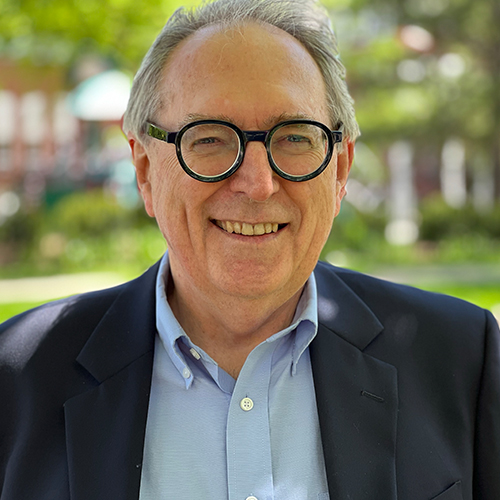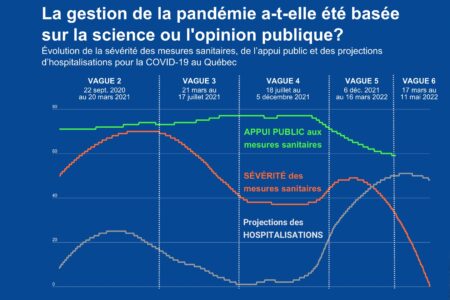
Educators swept up in the global orbit of the World Economic Forum and the international whirl of the Global Teacher Prize network were caught off-guard, like everyone else, by the COVID-19 pandemic. Their all-consuming priority continued to be promoting global visions of “21st century learning” and preparing the next generation for what Klaus Schwab, founder of the World Economic Forum, had dubbed the Fourth Industrial Revolution a year earlier in January 2019. Yet the massive K-12 education disruption did not register in the upper echelons of educational futurists. Nor has there been much inclination to delve into the hard realities of “COVID slide” and confront the need for proven learning loss recovery plans.
The dark and stormy skies of COVID-19 brought school system shutdowns, organizational upheaval, emergency home learning, and massive dislocations with adverse impacts for students, teachers and families. While the Organization for Economic Co-operation and Development (OECD) was already analyzing how the COVID-19 crisis could hurt education and school systems, globalists were still waxing philosophical about “standing at the precipice” and the advent of the so-called “Fourth Industrial Revolution” of technological innovation and transformation. Some education futurists embracing the Davos Manifesto – a set of ethical principles to guide companies in the age of the Fourth Industrial Revolution – and the UN Sustainable Development Goals saw passing clouds with silver linings. That has now morphed into the latest World Economic Forum panacea, the “The Great Reset.”
Globalists now see an opening for the long-anticipated tech-driven transformation – the “Big Shift” – in K-12 education. While the education landscape has been radically altered, the futurist reform agenda has remained surprisingly unchanged. Global automation, artificial intelligence, and the displacement of millions of workers would open the door of opportunity for “21st century learning” and a set of global competencies, built almost exclusively around progressive ideals such as creativity, innovation, collaborative engagement and success for all. “Building back better” has been reduced to developing children’s social and emotional skills, replacing robust student testing with largely unmeasurable competency-based assessment, and preparing the next generation for the technological workplace of the future.
While leading Canadian education grant-funded organizations and faculties of education champion the same research agenda, parents, administrators, and classroom teachers are beginning to confront the hidden costs of the pandemic. The prolonged period of improvised “home learning,” followed by further experiments in “on-again, off-again” hybrid blended learning, compounded by extended holiday breaks carrying on into 2021 are all taking a toll on the so-called “pandemic generation.” Postponing the resumption of provincial student assessments simply delays the time of reckoning.
The pandemic has set back learning for all students, and particularly those from disadvantaged, racialized and marginal communities. Most of the initial research on the COVID learning loss has originated outside of Canada because researchers here have been slow to respond and remain preoccupied with pre-pandemic priorities such as student well-being, anti-racism, and social inequities.
A McKinsey & Company research summary published in December 2020 provided reasonably reliable estimates of the total potential learning loss to the end of the school year in June 2021. While the initial April 2020 worst-case statistical forecast scenarios produced by the Oregon-based policy research institute North West Education Association have been averted, the cumulative learning loss could still be substantial, especially in mathematics, with students on average to likely lose five to nine months of learning by year’s end. Among American black students, the learning loss in mathematics averages six months to a year. All students are suffering losses, but they’re more acute among those who entered the pandemic with the most disadvantages.
International research corroborates the early American findings and demonstrates conclusively that school closures contributed to a documented COVID slide. Studies conducted in September and November of 2020 in the United Kingdom and Belgium, where students missed two to three months of school, confirm that students in the middle grades have suffered learning losses in mathematics and have actually gone backward in the case of language and writing skills.
Comparable Canadian research on learning loss is hard to find and attracts little national media attention. In November, a CBC Radio podcast examined the COVID slide’s impact on kids’ learning. It presented some evidence of the problem, then defaulted to standard pre-pandemic responses, dismissing learning loss concerns and instead focusing on children’s anxieties, mindfulness exercises, and reducing stress through broader and “softer” student assessments.
Two promising Alberta research studies, cited in passing in the CBC Radio podcast, should not be overlooked. Conducted by University of Alberta educational psychology professor George Georgiou, those studies demonstrate that young readers are lagging behind the learning curve in the wake of the pandemic. School shutdowns and the default to online learning have contributed to the problem.
Embarking on a globalist “build back better” project repackaging “21st century learning” and going soft on assessment may have some illusory appeal in COVID times. Yet it is clear that more immediate and urgent priorities need to be addressed in learning recovery plans and in preparing for the 2021-22 school year.
School talk about helping students catch up rings hollow unless it’s accompanied by concrete school strategies and practices to alleviate student learning loss. While COVID-19 has spawned new education resources, some such as the “Toolkit to Overcome Learning Loss” (produced by Virginia-based service provider Hanover Research), focus more on addressing social and emotional support needs with more diffuse “trauma-informed” recovery plans.
Although learning losses affect students across all grades, those with the most acute needs are concentrated in the early grades in mathematics and reading and among already struggling students.
The best school practices, exemplified by the Brown University/University of Chicago EdResearch for Recovery project, are more targeted and prioritize responding with effective intensive academic intervention programs. Although learning losses affect students across all grades, those with the most acute needs are concentrated in the early grades in mathematics and reading and among already struggling students. Compressing the subject content, applying classroom swat-team “intensive upgrading” practices, or holding students back a grade will not likely help struggling students and have potential adverse long-term consequences.
What works in closing the learning gap? Academically focused, supportive school environments and strong teacher-student relationships speed recovery from learning loss. Three strategies that have proven more effective are: (1) high-dosage one-on-one or small group tutoring tied directly to helping students master subject content in math and reading; (2) extended learning time “catch-up” academies, offered over weekends or during student holiday breaks, offered by highly trained teachers, including “double dose” math instruction; and (3) positive school culture attuned to early student warning signs, paired with consistent support and routines that help students to recover both academically and emotionally from disrupted periods of learning.
The COVID slide is real, and shoring up students’ educational foundations in mathematics, reading and writing is the new imperative. So is completing the transition to a technology-enabled system with properly resourced teacher training. The best prescription: stabilize the shaken system, close the knowledge gap, and help students to re-engage and catch up on lost learning.
Photo: Shutterstock.com, by Melinda Nagy








